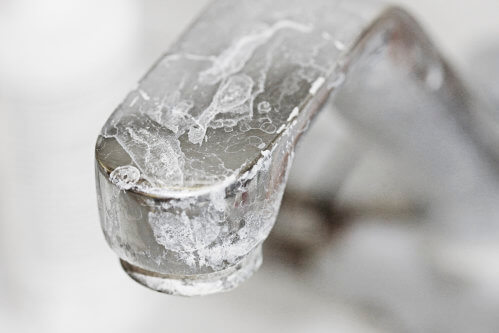The Pros and Cons of Hard Water
Hard water is a term used to describe water that contains high concentrations of dissolved minerals, primarily calcium and magnesium. It’s common in many regions around the world and can have both beneficial and detrimental effects depending on the context in which it’s used. Below, we’ll explore both the advantages and disadvantages of hard water in various applications.
What is Hard Water?
Hard water is formed when water percolates through rocks like limestone, chalk, and gypsum, which are rich in calcium and magnesium compounds. The minerals dissolve in the water, making it “hard.” The hardness of water is typically measured in grains per gallon (gpg) or milligrams per liter (mg/L) of calcium carbonate (CaCO₃). Water with more than 7 gpg (120 mg/L) is typically considered hard, while less than 3.5 gpg (60 mg/L) is classified as soft water.
Pros of Hard Water
1. Rich in Essential Minerals
-
Health Benefits: Hard water is a natural source of essential minerals like calcium and magnesium. These minerals are vital for various bodily functions. Calcium is essential for bone and teeth health, while magnesium plays a key role in muscle function, nerve transmission, and overall heart health.
-
Bone Health: The calcium content in hard water can contribute to strengthening bones and preventing osteoporosis, particularly when consumed over long periods.
2. Improved Hydration
-
Mineral Content: Some research suggests that the minerals in hard water can improve hydration, as the body can better absorb and use these minerals. Calcium and magnesium are involved in electrolyte balance, which is crucial for maintaining optimal hydration levels.
3. Good for Cardiovascular Health
-
Magnesium’s Role: Magnesium, which is abundant in hard water, has been linked to a reduced risk of cardiovascular disease. It can help regulate blood pressure, reduce the risk of heart disease, and support overall heart health.
-
Studies: Some epidemiological studies have shown that populations with higher levels of magnesium in their drinking water experience lower rates of heart disease.
4. Can Improve Taste for Some People
-
Mineral Flavor: The minerals present in hard water can impart a unique taste. Some people prefer the slightly “mineralized” flavor of hard water compared to soft water, which can taste more “flat” or bland.
5. Better Soil Health for Agriculture
-
Minerals for Plants: When hard water is used for irrigation, it can enrich the soil with calcium and magnesium, improving plant growth in areas with deficient soil. These minerals are essential for plant health and can aid in nutrient absorption.
-
Improved Crop Yield: In areas where the soil is not naturally rich in these minerals, hard water can help supplement crops, potentially increasing yield and improving soil fertility.
Cons of Hard Water
1. Scale Buildup in Pipes and Appliances
-
Limescale Deposits: One of the most significant drawbacks of hard water is its tendency to form scale (calcium carbonate) inside pipes, water heaters, and appliances such as dishwashers and washing machines. Over time, this can lead to clogged pipes, reduced efficiency, and expensive repairs.
-
Shortened Lifespan of Appliances: Appliances that use water regularly, like kettles, water heaters, and coffee machines, can accumulate mineral buildup, reducing their lifespan and efficiency.
2. Increased Soap and Detergent Usage
-
Ineffective Lathering: Hard water can interfere with the ability of soap and detergent to lather properly. The minerals in the water react with soap to form scum, reducing the soap’s effectiveness.
-
More Soap Required: This means that more soap or detergent is required to clean effectively, leading to increased costs for households and businesses that use water for washing clothes, dishes, and bodies.
3. Skin and Hair Issues
-
Dry Skin and Irritation: The minerals in hard water can cause skin dryness, irritation, and eczema flare-ups. This happens because the minerals leave a residue on the skin that can disrupt the skin’s natural oils and barrier.
-
Dull Hair: Hard water can also make hair appear dull and lifeless, as mineral buildup can leave a coating on the hair cuticle, preventing moisture from entering and making hair feel rough and brittle.
4. Staining on Dishes and Laundry
-
White Spots and Streaks: Hard water can cause unsightly white spots and streaks on dishes, glasses, and silverware after washing. These stains are caused by mineral deposits that do not completely rinse off.
-
Laundry Discoloration: Clothes washed in hard water may develop a gray or dingy appearance over time due to mineral deposits. The minerals in hard water can also cause the fabric to feel stiff and scratchy.
5. Health Risks in Excessive Amounts
-
Potential Kidney Stones: While calcium and magnesium are beneficial in moderate amounts, excessive consumption of hard water could contribute to the formation of kidney stones. This is particularly relevant if someone already has a predisposition to kidney stone formation.
-
Magnesium Overload: In rare cases, excessive magnesium consumption from hard water could lead to magnesium toxicity, resulting in symptoms like nausea, vomiting, and respiratory problems.
6. Increased Water Heating Costs
-
Energy Inefficiency: The buildup of scale in water heaters reduces the efficiency of heating systems. As the scale accumulates, it forms an insulating layer on heating elements, making it harder for them to transfer heat effectively. This leads to higher energy consumption and increased utility bills.
How to Deal with Hard Water
1. Water Softening
-
Ion Exchange: One of the most common methods to deal with hard water is using a water softener. Water softeners work by exchanging calcium and magnesium ions for sodium or potassium ions. This process makes the water “soft” and prevents scale buildup.
-
Reverse Osmosis: Another method involves using reverse osmosis filters, which can remove most of the dissolved minerals from the water. While this process is more expensive, it can be a good solution for those with extreme water hardness.
2. Vinegar and Citric Acid
-
Descaling Solutions: For appliances like kettles or dishwashers that accumulate mineral buildup, descaling solutions such as vinegar or citric acid can be used to dissolve the limescale. Regular cleaning can help extend the life of appliances.
3. Shower Filters and Moisturizers
-
For Skin and Hair: Installing a shower filter can reduce the mineral content in the water. Additionally, using moisturizing lotions and hair conditioners can mitigate the drying effects of hard water.
Conclusion
Hard water comes with a range of both advantages and disadvantages, depending on the context in which it is used. On the positive side, hard water provides essential minerals like calcium and magnesium, which can benefit health, hydration, and even agriculture. However, the mineral buildup, reduced soap effectiveness, and potential skin and appliance issues present considerable drawbacks.
For households or businesses facing the negative effects of hard water, solutions like water softeners, vinegar-based cleaning, or special filters can help mitigate many of the problems. Ultimately, whether hard water is a benefit or a hindrance depends on how well it’s managed and the specific needs of the users.
With VRconstruction’s HOME ENHANCE PROGRAM we test for hard water and offer solutions for your home. check us out today!





